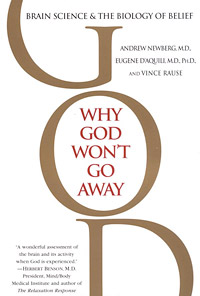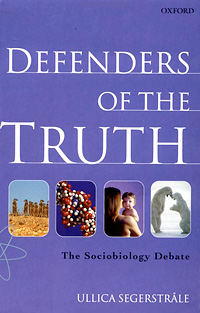Is the universe fine-tuned for life?
There was a young fellow from Trinity
Who took the square root of infinity.
But the number of digits
Gave him the fidgets;
He dropped Math and took up Divinity.
In the limerick above, physicist George Gamow dealt with the paradox of a finite being contemplating infinity by passing the buck to theologians.
In an attempt to prove that the universe was intelligently designed, religion has lately been fidgeting with the fine-tuning digits of the cosmos. The John Templeton Foundation even grants cash prizes for such “progress in religion.” Last year mathematical physicist and Anglican priest John C. Polkinghorne, recognized because he “has invigorated the search for interface between science and religion,” was given $1 million for his “treatment of theology as a natural science.” In 2000 physicist Freeman Dyson took home a $945,000 prize for such works as his 1979 book, Disturbing the Universe, in which he writes: “As we look out into the universe and identify the many accidents of physics and astronomy that have worked together to our benefit, it almost seems as if the Universe must in some sense have known that we were coming.” (continue reading…)
Comments Off on Digits & Fidgets
Any sufficiently advanced extraterrestrial intelligence is indistinguishable from God
As scientist extraordinaire and author of an empire of science-fiction books, Arthur C. Clarke is one of the farthest-seeing visionaries of our time. His pithy quotations tug harder than those of most futurists on our collective psyches for their insights into humanity and our unique place in the cosmos.
And none do so more than his famous Third Law: “Any sufficiently advanced technology is indistinguishable from magic.”
This observation stimulated me to think about the impact the discovery of an extraterrestrial intelligence (ETI) would have on science and religion. To that end, I would like to immodestly propose Shermer’s Last Law (I don’t believe in naming laws after oneself, so as the good book says, the last shall be first and the first shall be last): “Any sufficiently advanced ETI is indistinguishable from God.” (continue reading…)
read or write comments (3)
A review of Andrew Newberg, Eugene D’Aquili, and Vince Rause’s Why God Won’t Go Away: Brain Science and the Biology of Belief.
About ten years ago I began research on the question of why people believe in God, I asked a colleague in a religious studies program to recommend the latest path-breaking scientific work in this area. (continue reading…)
read or write comments (31)
Seventy-five years ago this month legal and intellectual titans collided in Dayton, Tennessee to begin what would go down in history as the “trial of the century.” Fundamentalist orator and three-time Presidential candidate William Jennings Bryan squared off with defense attorney par excellence Clarence Darrow, over whether high school teacher John T. Scopes had violated the law when he taught his students that they had descended from a common ancestor with modern apes millions of years ago.
Scopes, Bryan charged, was in violation of the 1925 Butler Act that made it “unlawful for any teacher in any of the Universities, Normals and all other public schools of the state … to teach any theory that denies the story of the Divine Creation of man as taught in the Bible, and to teach instead that man has descended from a lower order of animals.” After days of legal wrangling in the sweltering July heat in this, the first trial ever broadcast on radio and covered by every major newspaper in the land, Scopes was found guilty and fined $100 because, of course, he had broken the law. (continue reading…)
read or write comments (2)
A review of three books: Ullica Segerstråle’s Defenders of the Truth, Robin Marantz Henig’s The Monk in the Garden, and Jeffrey K. McKee’s The Riddled Chain.
Creationism, in some form, will probably be with us as long as biblical fundamentalists continue their misguided efforts to squeeze the square peg of religion into the round hole of science. But the debate over whether evolution happened was (continue reading…)
read or write comments (1)





